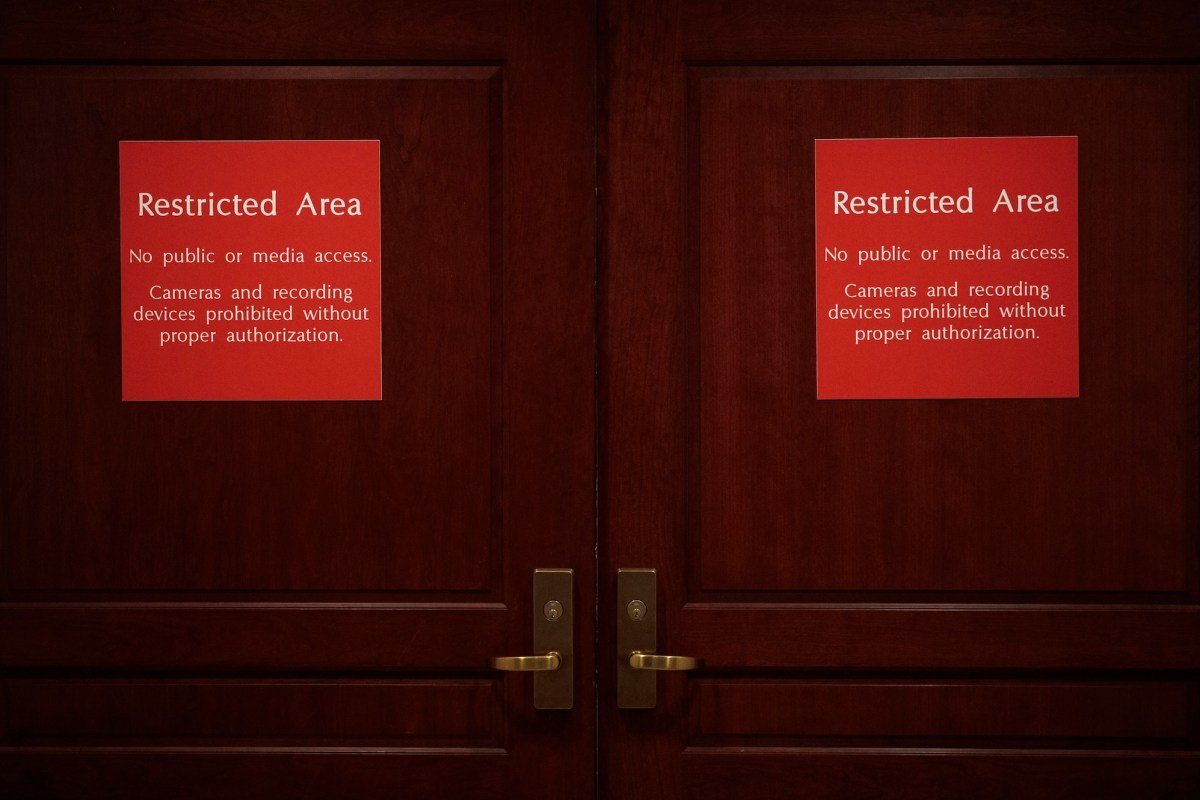Lawmakers were up late on Saturday, passing a bill that stirred controversy and sparked intense debate. The legislation aimed to reauthorize and expand a contentious U.S. surveillance law, which had just expired at midnight, much to the dismay of privacy advocates and lawmakers opposing it.
The bill passed with a 60-34 vote, authorizing Section 702 powers under the Foreign Intelligence Surveillance Act (FISA). This allows the government to gather the communications of foreign individuals by tapping into records from technology and phone providers. However, critics argue that FISA also scoops up American communications while targeting foreign subjects.
The White House and spy chiefs came out in full support of reauthorizing FISA, claiming that the law is crucial in preventing terrorist and cyber attacks. They warned that a lapse in powers would greatly hinder the government’s ability to gather intelligence. In fact, the Biden administration claims that a majority of the classified information in the president’s daily intelligence briefing originates from the Section 702 program.
On the other hand, privacy advocates and rights groups rejected the reauthorization of FISA. One of the major issues with this law is that it does not require the FBI or NSA to obtain a warrant before searching the Section 702 database for Americans’ communications. This has led to accusations of abuse of authority by these agencies in their warrantless searches of American communications.
Initially, some Republicans pushed for greater privacy protections by introducing a bipartisan effort to require a warrant before searching the government’s databases for American communications. Unfortunately, these efforts failed before the final vote on the Senate floor.
After the bill passed in the early hours of today, Senator Mark Warner, chair of the Senate Intelligence Committee, praised FISA as being “indispensable” to the U.S. intelligence community. Now, the bill heads to the President’s desk, where it is expected to be signed into law.
FISA was introduced in 1978, before the rise of the modern internet. It came under intense scrutiny in 2013, when classified documents leaked, exposing the U.S. government’s global wiretapping program under FISA. This implicated major tech and phone companies as unwilling participants.
While the Senate was expected to pass the surveillance bill, it faced new opposition after the House passed its version of the legislation last week. Critics argued that this version would extend the reach of FISA to include smaller companies and telecom providers that were not previously subjected to the law.
Communications providers were against this expanded definition of an “electronic communications service provider,” stating that it would inadvertently include companies beyond big tech and telecom providers who are already required to hand over user data.
Despite an amendment introduced by Senator Ron Wyden to remove this expanded measure from the bill, it failed to pass in a vote. Wyden, a Democrat known for being pro-privacy and a member of the Senate Intelligence Committee, accused his colleagues of waiting until the last minute to push forth renewal of warrantless surveillance.
“Time after time, those against reform make promises that their changes to the law will curb abuses. Yet, every time, the public finds out about new abuses with little oversight,” said Wyden in a statement.
In the end, the bill passed shortly after midnight, just in the nick of time.
Despite the eleventh-hour rush to pass the bill, a key provision in FISA ensures that the government’s programs under Section 702 do not suddenly shut down in the event of a lapse in legal powers. This provision requires the government to obtain an annual certification from the secretive FISA Court, which oversees and approves the government’s surveillance programs. The FISA Court last certified the government’s surveillance program under Section 702 in early April, allowing the government to continue using its lapsed authority until at least April 2025.
FISA will now expire at the end of 2026, setting the stage for a similar legislative showdown midway through the next administration.








